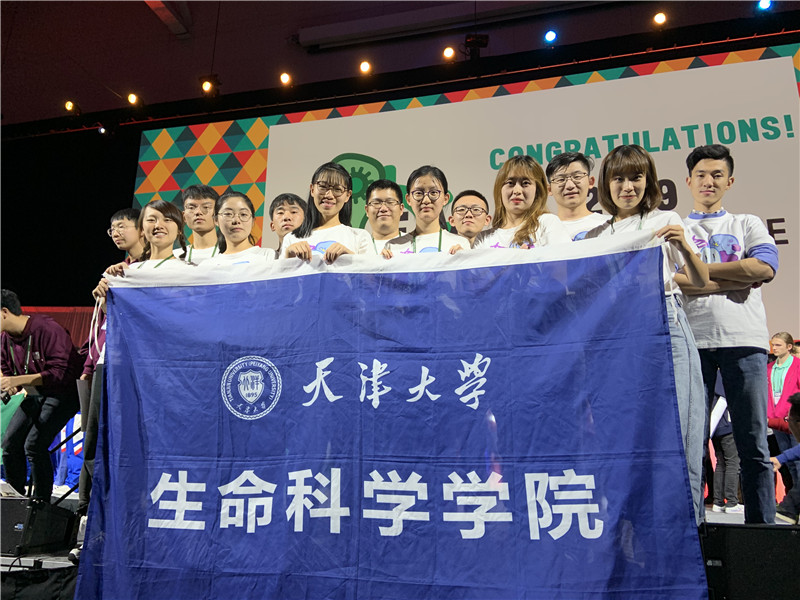On November 4, 2019, the award ceremony of the International Genetically Engineered Machine (iGEM) Competition was held in Boston. TJUSLS, China, a representative team from the School of Life Sciences (SLS) in Tianjin University won a Gold Medal and 4 Nominations, namely the Best Therapeutics Project Nomination, the Best Basic Component Nomination, the Best Composition Component Nomination and the Best Measurement Nomination. The Competition was fierce with more than 370 teams from over 70 countries and regions on five continents participating in the competition.

TJUSLS,China was composed of 11 undergraduate students of SLS and 7 undergraduate students from the School of Precision Instruments and Opto-electronics Engineering, the School of Electrical and Information Engineering, College of Intelligence and Computing, and the School of Architecture in Tianjin University, supervised by Wang Zefang, Associate Researcher and Chen Cheng, Associate Professor. The team members exploited their advantages to the full. They chose "Achilles' Heel of Metallo-Beta-Lactamases" as the topic and put forward a new "1+1" therapy. They used the methods of synthetic biology to screen the broad-spectrum inhibitor molecule in different kinds of metallo-beta-lactamases. After screening the broad-spectrum inhibitors with significant activity, the team creatively used the genetic engineering bacteria to simulate the drug-resistant bacteria environment, to evaluate the application prospect of inhibitors. The team received a high evaluation from the judges and experts attending the meeting.
The iGEM Competition was first launched in 2005, initially sponsored by the Massachusetts Institute of Technology in the United States. It is the highest level of international competition of science and technology among college students in the field of synthetic biology. It is also known as the world championship in the field of synthetic biology. To compete the teams needed to use standard biological modules to construct genetic circuits and establish an effective mathematical model to implement the prediction, control and measurement of the sophisticated artificial biological systems, carry out social investigation and practice, make a defense and do the wall newspaper show. Every year, the achievements in the competition are reported by the top academic magazines, such asScienceandNature, which have extensive international influence. So far, the representative team of SLS has won 3 Gold Medals, 1 Bronze Medal, 3 Single Award and 9 Nominations since it first participated in the competition in 2015.
By the School of Life Sciences
Editors: Eva Yin & Doris Harrington






